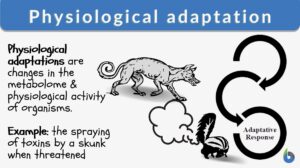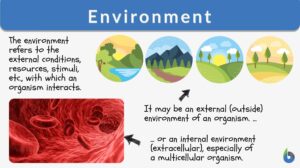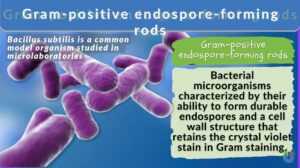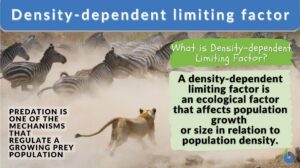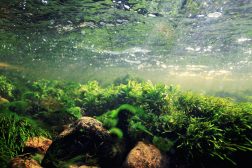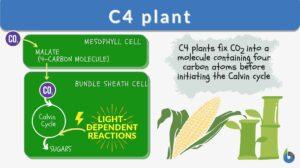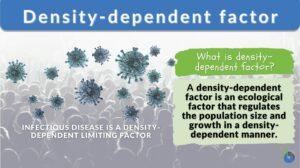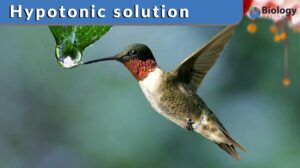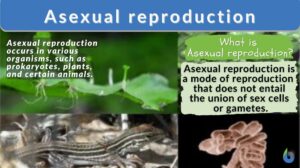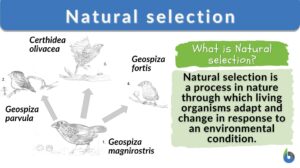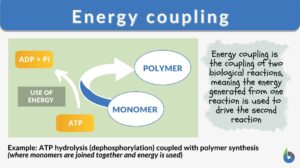Search Results for: conditions
Thermophile
Thermophiles Definition What are thermophiles? Let us first understand the literal meaning of the word ‘thermophile’.... Read More
Abiotic Factors – Water Conditions
Evidently, the light and heat from the sun play an important role in providing suitable conditions. However, the water... Read More
Glycolysis
What is Glycolysis and Why is it Important? Glycolysis is a metabolic pathway by which the 6-carbon molecule of glucose is... Read More
Physiological adaptation
If we look over evolutionary history, we find that it’s neither the most genius and intelligent nor the strongest and the... Read More
Parthenogenesis
To reproduce, by definition, means to produce new offspring. The process is referred to as reproduction, which is one of the... Read More
Homeostasis
Homeostasis is the tendency not to stray from the range of favorable or ideal internal conditions. Such conditions must be... Read More
Unicellular
Unicellular organisms are organisms consisting of one cell only that performs all vital functions including metabolism,... Read More
Skeletal system
What is the Skeletal System? How to define a skeleton? The skeletal system is the main framework that gives your body its... Read More
Environment
Environment Definition What does environment mean? If you mean physical environment, then it is defined as the surrounding... Read More
Facultative anaerobe
Facultative Anaerobe Definition What does facultative anaerobe mean? Facultative organisms are the most adaptable... Read More
Equilibrium
Equilibrium Definition In Biology Equilibrium refers to the state of balance and stability. In biology, equilibrium is... Read More
Genetic diversity
Genetic Diversity Definition Each species is composed of individuals with their own set of genes. A gene is the inheritance... Read More
Hypertonic
Hypertonic Definition Hypertonic is a term used to describe an entity being in the state of hypertonicity, where there is a... Read More
Gram-positive endospore-forming rods
Gram-Positive Endospore-Forming Rods Definition Gram-positive endospore-forming rods are a group of rod-shaped bacteria... Read More
Density dependent limiting factor
What Is A Density-Dependent Limiting Factor? Density-dependent limiting factors are limiting factors, which, depending on... Read More
Biotic potential
When we look at the different forms of life, we often wonder how they have continued to exist one generation after another.... Read More
Lotic Communities & Algae
In general, the diversity of plant species in a lotic community is small compared to that of a still water (lentic)... Read More
The Psychobiology of Hysteria
Editorial Hysteria is often regarded as the archetypal psychodynamic illness. Freud carried out much of his early work on... Read More
Environmental resistance
Environmental Resistance Definition Environmental resistance is such a process in which certain different elements or... Read More
Density dependent factor
Density-dependent factors are the limiting factors of an ecosystem that regulate population growth in a density-dependent... Read More
Cellular respiration
Cellular Respiration Definition What is cellular respiration in simple terms? Cellular respiration can be defined simply as... Read More
Hypotonic solution
Hypotonic Solution Definition What is a hypotonic solution? It refers to a solution that contains a lower amount of solute... Read More
Colony-forming unit
Colony Forming Unit Definition A Colony Forming Unit (CFU) in microbiology and cellular biology refers to a measure of... Read More
Predisposing factors
All organisms can be born with or develop a disease at any point in their lifetime. When someone is born with a disease, it... Read More
Crown of head
Crown of Head Definition The crown of the head is the upper dorsal part (or area) of the head. Several creatures have... Read More
Asexual reproduction
Asexual Reproduction Definition What is asexual reproduction? Asexual reproduction is a type of reproduction that does not... Read More
Realized niche
What is a niche? A niche can be defined as the means by which a species or an individual interacts with its environment. In... Read More
Natural selection
Natural Selection Definition What is natural selection in biology? Natural selection is defined as a process in nature... Read More
Energy coupling
What is Energy Coupling? Work, whether it be physical or biological, requires energy to be expended. In biological... Read More






